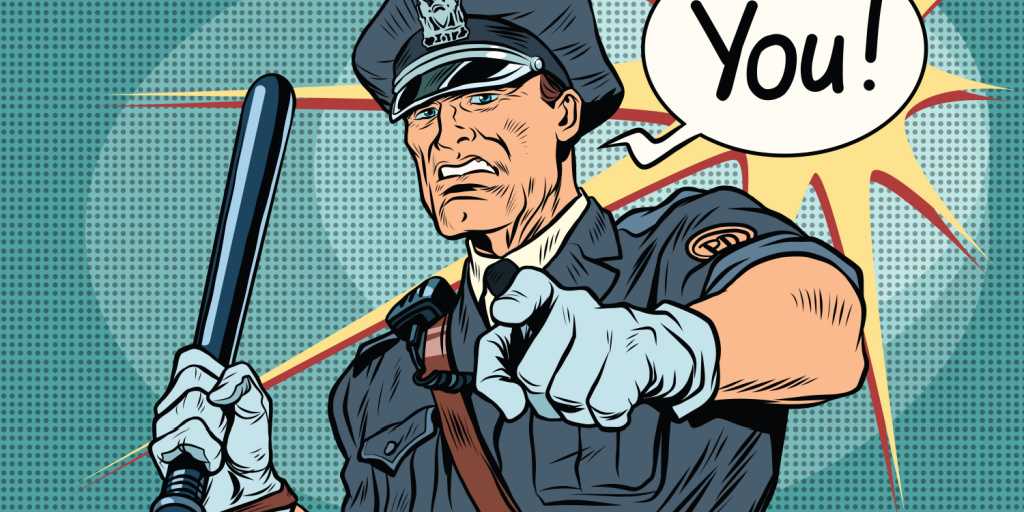What is a Career Criminal?
You might think that “career criminal” is just an emotionally charged phrase used by politicians, but it is actually a nuanced legal term used in federal courts during sentencing. If a defendant is classified as a career criminal, judges use a different and harsher set of sentencing guidelines for determining the appropriate length of the prison sentence that the defendant should receive. While the “career criminal” designation can apply to other crimes, the designation has a significant, and often criticized, impact on the length of the sentences for non-violent drug offenders, sometimes adding 10 or more years on to their sentences.
This blog will discuss how the career criminal designation affects drug offenders and a recent holding in the DC Circuit Court of Appeals case, U.S. v. Winstead, that could reduce the number of drug offenders who are sentenced as “career criminals.”
How U.S. Sentencing Guidelines Define “Career Criminals” In General
Under the U.S. Sentencing Guidelines (USSG) § 4B1.1, a defendant is considered as a career criminal or “career offender”, for sentencing purposes, if the defendant meets these three criteria:
- The defendant was over 18 at the time the defendant committed the “instant offense of conviction” (the crime for which the defendant was just tried and found guilty)
- The instant offense of conviction is a felony that is either a crime of violence or a controlled substance offense
- The defendant has at least two prior felony convictions that are either crimes of violence or controlled substance offenses
Controlled Substance Offenses
The guidelines, (USSG) § 4B1.2 further define a controlled substance offense as:
an offense under federal or state law, punishable by imprisonment for a term exceeding one year, that prohibits the manufacture, import, export, distribution, or dispensing of a controlled substance (or a counterfeit substance) or the possession of a controlled substance (or a counterfeit substance) with intent to manufacture, import, export, distribute, or dispense
Attempt or Conspiracy to Commit Controlled Substance Offenses
Remember, defendants designated as career criminals could receive much longer sentences, so courts must carefully consider all the nuances of a defendant’s criminal history and determine if the defendant’s current and past offenses are offenses that meet the criteria above. As you can see, the definition of a controlled substance offense does not address whether incomplete (or “inchoate”) offenses such as attempted drug distribution or conspiracy to distribute would be considered prior controlled substance offenses for the purposes of determining whether someone is a career criminal.
These, and other ambiguities, are addressed in the USSC’s official commentary to the guidelines. In a 1993 case, U.S. v Stinson, the U.S. Supreme Court decided that the USSC commentary is binding on federal courts, therefore most circuits take full consideration of both the guidelines and the commentary when calculating the defendant’s sentence. The only time the commentary would not be binding on the court is when the commentary violates the Constitution or a federal statute or if the commentary is inconsistent with the guidelines.
Here, the guideline gives the definition of a controlled substance offense, which does not specifically list inchoate offenses. Then, USSC added the following commentary:
“Crime of violence” and “controlled substance offense” include the offenses of aiding and abetting, conspiring, and attempting to commit such offenses.
But, in a recent case, US. v. Winstead, the defendant successfully challenged the USSC’s ability to use commentary to expand the definition of controlled substance offenses to include inchoate crimes.
The Court’s Reasoning in U.S. v. Winstead
Mr. Winstead was no angel, but he had no prior, completed controlled substance offense convictions. He had a 1998 conviction for attempted possession with intent to distribute cocaine and in 2002 he sold marijuana in a baggie to an undercover officer resulting in a conviction for attempted distribution of marijuana.
In the current case, the DC district court convicted Mr. Winstead of three crimes; two related to the possession of a firearm and possession with intent to distribute 2.5 grams of cocaine. All federal sentencing takes into account a defendant’s criminal history already, so taking into account Mr. Winstead’s criminal record and the instant offense, the minimum guideline sentence would have been 17.5 years. Because the commentary directs the judge to consider Mr. Winstead’s two prior inchoate crimes as controlled substance offenses, for a total of three controlled substance offenses, Mr. Winstead was designated as a career criminal and sentenced to 30 years. Therefore, the career criminal designation increased his sentence by at least 10 years. His attorney raised no objection to the sentence.
On appeal, Mr. Winstead argued that 4B1.2 already gives a detailed definition of a “controlled substance offense” and inchoate offenses are specifically excluded. The Court agreed with Mr. Winstead’s argument and pointed out that in other areas of the guidelines, such as the definition for a crime of violence, the definition specifies that the term includes “attempted” use of force or “threatened” use of force. The fact that the word “attempted” was left out of the definition for controlled substance offenses is indicative of the drafter’s intent to exclude those crimes and therefore commentary cannot be used to expand the definition. They also referred to a Supreme Court case that makes clear that “as a rule, a definition which declares what a term ‘means’ … excludes any meaning that is not stated.” Burgess v. U.S, 553 U.S. 122, 130 (2008).
Going forward, this argument is likely to be made in other circuits. There are other areas of the sentencing guidelines, such as firearms offenses and immigration offenses, where the term “controlled substance offense” is used for the purpose of increasing the guideline sentence.
The “career criminal” designation is only one of many sentencing enhancements incorporated into the USSG. These enhancements can often result in very lengthy sentences that are not commensurate with the severity of the offense. Therefore, when facing federal charges, it is critical to have a defense attorney that has an in-depth understanding of these sentencing enhancements.
Recommended Articles

Arizona’s new sealing statute is a powerful way for people who have been charged or convicted of many common offenses, to be able to say “no” in many instances.

In Arizona, “Aggravated Assault” charged under ARS § 13-1204 is a Class Four Felony, and in some cases with mandatory prison.

DUI or domestic violence police misconduct even if not resulting in grievous misfortune can sometimes provide a helpful remedy for the criminally accused.

people are surprised by how outsized the consequences some misdemeanor convictions can be. collateral consequences—meaning all those hidden consequences.

For thirty years two federal laws prohibited all those convicted of misdemeanor domestic violence offenses from ever possessing firearms.

About Michael Harwin
Michael’s skill and experience have been recognized repeatedly. He holds an A-V 5/5 preeminent rating by Martindale Hubbell. He has been named one of the top lawyers in Arizona by Southwest Superlawyers, and one of the best lawyers in Tucson by Tucson Lifestyle Magazine. He also has been named one of the best lawyers in the United States by BestofUS.com , and given the highest rating possible by AVVO, 10/10 Superb. Amazon Books


